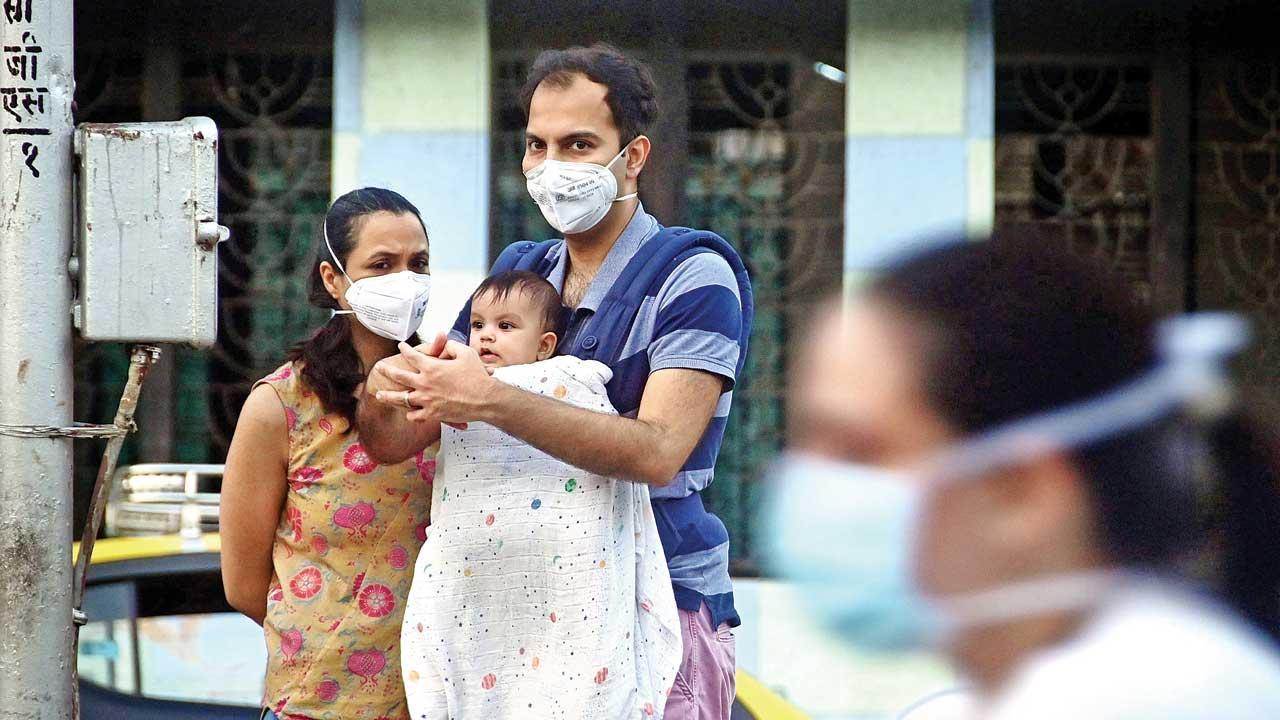Economically weaker sections in the city worst hit, 23 per cent in survey say they left Mumbai due to job loss, many worked without salaries

Masked Mumbaikars seen near Churchgate railway station. File pic
Non-Profit Praja Foundation has released a report on the COVID-19 pandemic’s impact on Mumbaikars, with one of the main findings suggesting a 29 per cent drop in per day incomes. Apart from this, 23 per cent respondents left the city due to job loss and fear of COVID-19.
ADVERTISEMENT
The report studied the impact of the pandemic on livelihood, education, health, housing and transport. While most people prefer bus over trains after the pandemic, work from home (WFH) seems to be the future. Respondents also appeared to be satisfied with the COVID treatment in public hospitals and with online education.
The household survey had a sample size of 2,087 with the livelihood, housing and transport sample having 791 respondents, education having 527 respondents and health having 769 respondents.
Two out of three respondents said their livelihood was adversely impacted. Of these, 36 per cent had leave without pay, 28 per cent worked with a reduced salary, 25 per cent worked without salary and 13 per cent had extra working hours or were otherwise overburdened.
Nine per cent respondents from socio-economic class (SEC) A (socio-economic group comprising officers/post-graduation level citizens) lost their job and 47 per cent from the lowest SEC E (unskilled/educated up to Std IV). “80 per cent unskilled workers saw a major impact on their job, with 44 per cent losing employment. The lower socio-economic sections engaged in informal employment have been the worst affected,” said Nitai Mehta, founder and managing trustee, Praja Foundation.
“People now prefer WFH. A hybrid model (online plus physical attendance) of working will be preferred in future. The survey emphasises on the need to develop housing and livelihood options together. It will reduce the load on transport too,” said Milind Mhaske, director, Praja Foundation.
Jennifer Spencer, a project coordinator, said, “A majority of the schools tried to connect with students through online education. Though 97 per cent students received education online, in some cases, sons got preference over daughters if there was only one device.”
“There should be more awareness about mental health. While 60 per cent respondents faced stress, 84 per cent did not speak to anyone about it, which makes the situation difficult,” said Tristan Braganza from Hansa Research group.
 Subscribe today by clicking the link and stay updated with the latest news!" Click here!
Subscribe today by clicking the link and stay updated with the latest news!" Click here!






